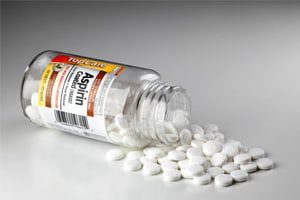
The Food and Drug Administration (FDA) is strengthening label warnings that non-aspirin nonsteroidal anti-inflammatory drugs (NSAIDs) increase the chance of a heart attack or stroke. After a comprehensive review of new safety information, the agency is requiring updates to the drug labels of all prescription NSAIDs. The Drug Facts labels of over-the-counter (OTC) non-aspirin NSAIDs […]

FDA Strengthens Heart Attack/Stroke Warnings for NSAIDs
The Food and Drug Administration (FDA) is strengthening label warnings that non-aspirin nonsteroidal anti-inflammatory drugs (NSAIDs) increase the chance of a heart attack or stroke.
After a comprehensive review of new safety information, the agency is requiring updates to the drug labels of all prescription NSAIDs. The Drug Facts labels of over-the-counter (OTC) non-aspirin NSAIDs already contain information on heart attack and stroke risk. The FDA will also request updates to the OTC non-aspirin NSAID Drug Facts labels.
NSAIDs are widely used to treat pain and fever from medical conditions such as arthritis, menstrual cramps, headaches, colds, and the flu. NSAIDs are available by prescription and over the counter. NSAIDs include brand name and generic drugs such as ibuprofen (Advil, Motrin), naproxen (Aleve), indomethacin (Indocin, Tivorbex), and prescription arthritis drugs known as COX-2 inhibitors, such as Celebrex (celecoxib). The FDA safety communication contains a table of NSAIDs.
Prescription NSAID labels will be revised to reflect the following information:
The risk of heart attack and stroke with NSAID use, either of which can lead to death, was first described in 2005 in the Boxed Warning and Warnings and Precautions sections of the prescription drug labels. The FDA has since reviewed new safety information on prescription and OTC NSAIDs, including observational studies, a large combined analysis of clinical trials, and scientific publications. These studies were discussed at a joint meeting of the Arthritis Advisory Committee and Drug Safety and Risk Management Advisory Committee held February 10-11, 2014.
Because many prescription and OTC medicines contain NSAIDs, consumers should avoid taking multiple remedies with the same active ingredient, the FDA said.
The FDA recommends that patients taking NSAIDs remain alert for heart-related side effects such as chest pain, shortness of breath or trouble breathing, weakness in one part or side of their body, or slurred speech. They should seek immediate medical attention if they experience these symptoms. Health care professionals and patients are encouraged to report adverse events or side effects related to the use of these products to the FDA’s MedWatch Safety Information and Adverse Event Reporting Program.


